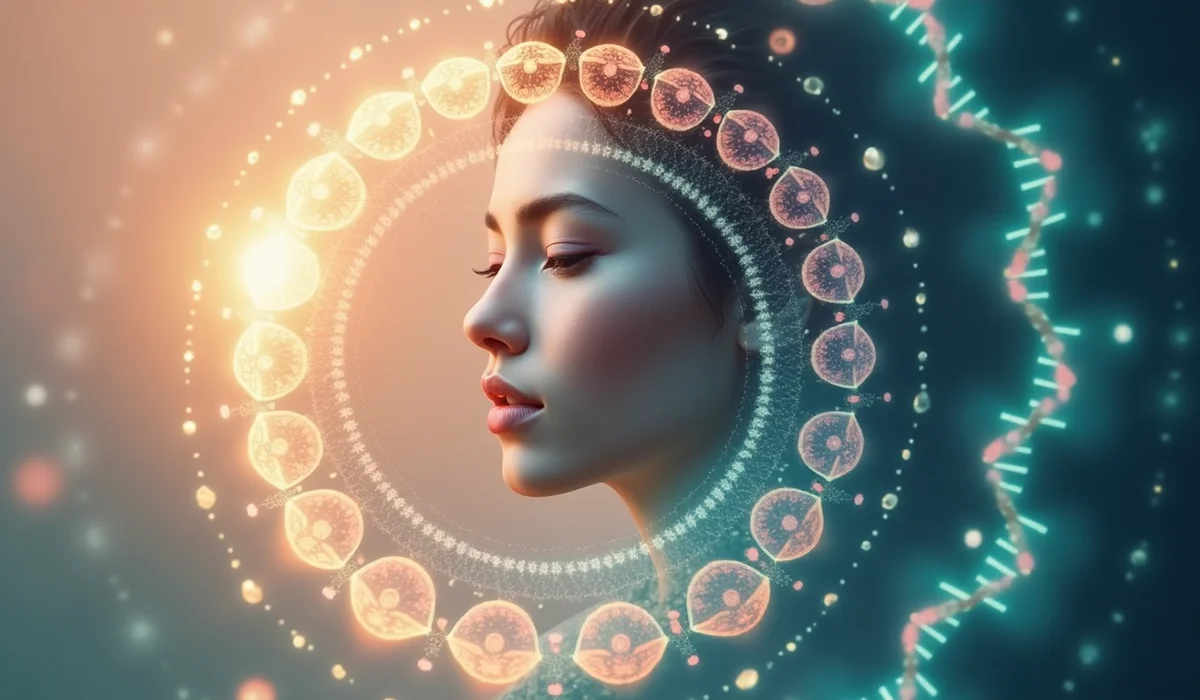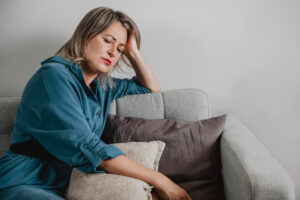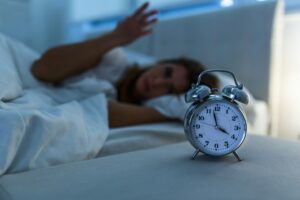The human body contains more than 50 different hormones – a fascinating discovery by scientists. These chemical messengers control everything from metabolism to mood. Hormone imbalances affect millions of Americans yearly and can lead to various health issues, including diabetes, thyroid disease, and obesity. Understanding what causes hormonal imbalance and recognizing the symptoms of hormone imbalance is crucial for maintaining overall health as we age.
Our bodies experience radical alterations in hormone levels as we grow older. The U.S. population will include 83.7 million people aged 65 and older by 2050, which makes understanding the connection between hormones and aging vital. These changes affect both men and women uniquely. Men’s testosterone levels begin declining between ages 20-30, while women experience dramatic hormonal changes in women during menopause. Men go through similar changes during andropause.
Your hormone levels fluctuate throughout different life stages, but you can take steps to maintain balance. Simple lifestyle changes can help manage these variations effectively. Learning to spot warning signs that need medical attention is equally important. This piece offers practical strategies that will help you adapt to your body’s changing needs, whether you notice early signs of hormonal imbalance or want to prepare for the future. We’ll explore how to balance hormones naturally and discuss various methods on how to fix hormonal imbalance.
Understanding Your Body’s Hormone Changes Through the Decades
Let’s look at how our endocrine system evolves as we age through different life stages. The endocrine system helps us survive and live longer by regulating basic processes like energy consumption and stress response[1].
Key hormonal changes in your 30s and 40s
Our body’s hormones start to change noticeably in our 30s. Estrogen and progesterone levels gradually decline during this period[2]. Men’s testosterone levels also drop by about 1% each year once they hit their 30s[3]. These changes can lead to various symptoms of hormone imbalance in both men and women.
Many women start to notice perimenopause symptoms as early as their mid-30s. These changes show up as:
- Irregular menstrual cycles
- Changes in mood and sleep patterns
- Variations in energy levels
- New or increased premenstrual symptoms[2]
Critical changes during your 50s and 60s
The most dramatic hormone changes happen in our 50s. Women usually enter menopause around age 51[3], when their estrogen production drops sharply. This affects 70-80% of women’s quality of life and daily activities[4]. Understanding these hormonal changes in women is crucial for managing symptoms and maintaining overall health.
Men in their 50s and 60s start to feel more effects from lower testosterone. These changes affect their:
- Muscle mass and strength
- Bone density
- Energy levels
- Cognitive function[5]
Managing hormone levels in your 70s and beyond
Our endocrine system keeps adapting as we reach our 70s. About 10-15% of women still get hot flashes even in their 70s[6]. Balanced hormones become crucial for overall health at this stage.
Age affects each hormone-producing gland differently. The thyroid shows higher TSH and lower free T3 and T4 concentrations with age[1]. These changes affect our metabolism and energy levels, potentially leading to conditions like hypothyroidism or hyperthyroidism.
Scientists now know that hormone changes aren’t just about getting older – they help us adapt. Research suggests that some age-related hormone changes might be our body’s way to live longer through slower cell growth and improved physiologic reserve capacity[1].
Major Hormones Affected by the Aging Process
Our bodies go through hormone changes as we age. Let’s explore what actually happens inside our bodies so we can handle these changes better and learn how to regulate hormones effectively.
Sex hormone fluctuations with age
Sex hormones change drastically in both men and women. Men’s testosterone levels drop by about 1-2% each year after their thirties[7]. Yes, it is true that 20-30% of men over 60 have low testosterone levels[7]. This decline can lead to various symptoms of hormone imbalance in males, including decreased libido and muscle mass.
Women face more dramatic changes. Estrogen and progesterone levels start to drop as menopause approaches. The pituitary gland tries to make up by producing more follicle-stimulating hormone[8]. All the same, these hormonal changes can trigger:
- Hot flashes and night sweats
- Changes in bone density
- Mood fluctuations
- Sleep disturbances
These symptoms are often indicative of hormone imbalance in women and may require attention to maintain overall health and well-being.
Thyroid and metabolic hormone changes
Our thyroid function changes as years pass. TSH (thyroid-stimulating hormone) levels rise steadily after our thirties[9]. More importantly, we’ve found that older adults have higher TSH concentrations than younger people at any given thyroid hormone level[9]. These changes can sometimes lead to hypothyroidism or hyperthyroidism, affecting overall metabolism and energy levels.
These thyroid changes affect our metabolism differently as time goes on. Studies show our metabolism starts slowing down around age 20[10]. This explains why keeping a healthy weight gets harder as we age and why some people experience weight gain as a symptom of hormonal imbalance.
Stress hormone alterations over time
Age affects how our bodies handle stress through changes in cortisol, our main stress hormone. Cortisol helps control several body functions:
- Blood sugar levels
- Immune system responses
- Blood pressure control
- Energy metabolism
Long-term stress can disrupt our cortisol system. This leads to high blood sugar and increases the risk of Type 2 diabetes[11]. The situation becomes worse when you have chronic stress affecting multiple hormone systems at once – from lower testosterone production to irregular menstrual cycles[12]. Understanding these connections is crucial when learning how to balance hormones and manage stress effectively.
The sort of thing I love about these hormone changes is that they’re all connected, affecting our entire body. This knowledge helps us know when we might need extra support or medical help to keep our hormones balanced.
How Lifestyle Impacts Age-Related Hormone Changes
My research over the years has shown that our lifestyle choices affect how our hormones change with age by a lot. Let me share how three vital factors can help us keep better hormone balance as we get older and potentially fix hormonal imbalance naturally.
Diet’s role in hormone balance
The food we eat forms the foundations of hormone production. Poor diet can throw off our delicate hormone balance, especially insulin levels. Scientists have found that there was a clear link between eating too many processed foods and refined sugars and insulin resistance[13]. This becomes more common as we age and can contribute to the development of diabetes.
Our diet affects other vital hormones like thyroid and sex hormones too. To name just one example, some nutrients play key roles in hormone production – zinc and omega-3 fatty acids help create testosterone[14]. My advice is to focus on whole foods packed with proteins, healthy fats, and fiber to support your hormone health and learn how to balance hormones naturally through diet.
Exercise effects on hormone production
Exercise has powerful effects on our hormone balance. Research shows that regular exercise can:
- Make hormone receptors more sensitive[15]
- Fight insulin resistance even without weight loss[15]
- Boost delivery of nutrients and hormone signals[15]
- Help maintain testosterone in men and estrogen in women[13]
Of course, the type of exercise makes a difference. High-intensity interval training, strength training, and cardio all help prevent insulin resistance[15]. People who can’t do intense workouts can still benefit – a simple daily walk raises key hormone levels[15]. Regular exercise is an excellent way to regulate hormones and maintain overall health.
Sleep quality and hormone regulation
Sleep quality is a vital factor in hormone balance. Scientists have found that 70 million adults in the United States can’t get good sleep[16]. This matters because poor sleep disrupts several key hormones:
Our bodies regulate growth hormone, leptin (which controls appetite), and insulin while we sleep[13]. Bad sleep throws off these hormones’ production and messes with our metabolism, appetite, and energy levels[13]. This disruption can lead to various symptoms of hormone imbalance, including weight gain and mood changes.
Age makes it harder to get quality sleep[17]. The best approach is to stick to regular sleep times and create the right environment for rest. Research shows we should avoid electronic devices before bed since blue light disrupts our natural sleep patterns[16]. Improving sleep quality is an essential step in learning how to fix hormonal imbalance.
Natural Ways to Support Hormone Balance
Let me share some natural approaches that have helped my patients maintain healthy hormone levels during aging. My practice has shown exceptional results when people combine the right supplements with stress management and consistent daily habits. These methods can be particularly effective for those wondering how to balance hormones naturally.
Evidence-based supplements and herbs
Research shows that certain herbs and supplements help support hormone balance. Chaste Tree Berry (Vitex) works directly on the pituitary gland to help balance hormone production[5]. Evening Primrose Oil has shown promise to regulate hormonal fluctuations and ease PMS symptoms[18]. These natural remedies for hormone imbalance can be particularly beneficial for women experiencing hormonal changes.
These supplements are the most important for hormone balance:
- Magnesium – supports thyroid function and hormone regulation[19]
- Omega-3 fatty acids – help reduce cortisol levels and improve insulin sensitivity[15]
- Probiotics – support gut health and optimize estrogen metabolism[19]
- DIM (Diindolylmethane) – helps you with healthy estrogen metabolism[19]
Stress management techniques
Along with proper supplementation, managing stress is vital as we age. Research shows that meditation practice for 6 months can improve insulin levels[20]. My experience suggests these stress-reduction techniques work best with consistent implementation:
Breathing exercises and meditation show remarkable effects on cortisol levels[21]. Just like exercise affects our muscles, regular stress management strengthens our body’s hormone balance. These techniques can be particularly helpful for those experiencing symptoms of hormone imbalance related to stress.
Daily habits for hormone optimization
Beyond supplements and stress management, here are my recommended daily practices for optimal hormone health:
- Keep consistent sleep schedules to regulate melatonin and cortisol[15]
- Eat fiber-rich foods to support gut health and hormone metabolism[15]
- Stay hydrated – dehydration can affect hormone performance[22]
- Reduce exposure to environmental toxins that disrupt hormone balance[22]
- Do moderate activity for at least 30 minutes daily[22]
These natural approaches work well, but you should work with a healthcare provider, especially if you have significant hormone-related symptoms. Patients who combine these natural methods with professional guidance achieve the best results in learning how to regulate hormones effectively.
Note that hormone balance isn’t just about treating symptoms – it creates an environment where your endocrine system can function at its best. Proper supplementation, stress management, and daily habits support our body’s natural hormone production as we age.
Warning Signs of Hormone Imbalance
My specialty as a doctor in hormone health has taught me that early detection of hormone imbalance symptoms makes the biggest difference in treatment outcomes. Let me share warning signs I look for with my patients, which can help you understand when to seek help for hormonal imbalance.
Physical symptoms to watch for
Our bodies give us clear signals when hormone levels change. My patients often notice weight changes first – many experience unexplained weight gain or loss[2]. The physical symptoms typically include:
- Fatigue and low energy levels[23]
- Sleep disturbances or insomnia[23]
- Skin changes, including acne and dryness[2]
- Changes in hair growth or loss[3]
- Digestive issues and metabolism changes[3]
These physical signs are often the first indicators of hormonal imbalance symptoms in females and males alike.
Emotional and cognitive indicators
Hormone imbalances affect both our bodies and minds deeply. Studies show hormonal fluctuations can trigger major mood changes. Up to 25% of women develop major depression within 6 months after childbirth[24], highlighting the significant impact of hormonal changes during pregnancy and postpartum periods.
My patients’ cognitive symptoms usually include:
- Memory problems and difficulty concentrating[23]
- Unexplained anxiety or depression[23]
- Mood swings that affect daily life[24]
- Brain fog and reduced mental clarity[25]
These emotional changes are real symptoms connected to hormone level changes. To name just one example, estrogen affects serotonin levels and endorphin production in the brain[24].
When to seek medical help
You should talk to a healthcare provider if symptoms persist. Get professional help if you notice:
- Irregular menstrual cycles or changes in menstruation patterns[26]
- Persistent fatigue that interferes with daily activities[3]
- Severe mood swings or depression lasting more than two weeks[24]
- Unexplained weight changes despite maintaining regular habits[2]
Your healthcare provider can run complete hormonal imbalance tests to identify specific imbalances[4]. Blood tests and a full picture help us determine which hormones need attention and create an appropriate treatment plan[6].
Many of my patients dismiss these warning signs as normal aging or stress. But early treatment leads to better outcomes. Note that hormone imbalances affect men and women differently – normal patterns for one person might indicate problems for another[3]. Understanding these differences is crucial when learning how to test for hormonal imbalance and seeking appropriate treatment.
Conclusion
Taking control of our health as we age depends on understanding hormone changes. Research shows that lifestyle choices and early intervention can make the biggest difference in managing hormone-related challenges, though these changes affect each person differently.
My clinical experience shows that balanced hormones need a detailed approach. Your endocrine system benefits from diet changes, regular exercise, quality sleep, and stress management working together. We can minimize the effects of certain inevitable changes through informed choices and healthy habits. This comprehensive approach is key to learning how to balance hormones and maintain overall health.
Patients often ask whether they should wait for severe symptoms before getting help. The answer is simple – early treatment of hormone imbalances creates better outcomes. These natural processes deserve active support and management rather than viewing them as aging’s unavoidable burden.
Your hormone health experience remains unique to you. General guidelines offer a helpful framework, but working with healthcare providers who understand your specific needs will give you the best approach to balanced hormones throughout your life. Whether you’re dealing with hormonal imbalance symptoms in females, hormone imbalance in women, or general signs of hormonal imbalance, a personalized approach is crucial.
Remember, maintaining hormone balance is an ongoing process. By staying informed about what causes hormonal imbalance, recognizing the symptoms, and knowing how to fix hormonal imbalance through natural methods and medical interventions when necessary, you can take proactive steps towards better health and well-being at any age.
References
[1] – https://pmc.ncbi.nlm.nih.gov/articles/PMC10187696/
[2] – https://www.webmd.com/women/ss/slideshow-hormone-imbalance
[3] – https://my.clevelandclinic.org/health/diseases/22673-hormonal-imbalance
[5] – https://www.draminadavison.com/post/boost-your-hormone-health-naturally-5-effective-herbs-to-try
[6] – https://familymedicineaustin.com/when-to-see-a-doctor-for-hormonal-imbalance/
[7] – https://pmc.ncbi.nlm.nih.gov/articles/PMC5538340/
[8] – https://www.rush.edu/news/hormones-you-age
[9] – https://pmc.ncbi.nlm.nih.gov/articles/PMC9081302/
[10] – https://medlineplus.gov/ency/article/004000.htm
[11] – https://my.clevelandclinic.org/health/articles/22187-cortisol
[12] – https://pmc.ncbi.nlm.nih.gov/articles/PMC3079864/
[13] – https://medstudio.com/blog/lifestyle-factors-that-can-disrupt-your-hormone-balance
[14] – https://www.bodylogicmd.com/blog/lifestyle-factors-and-hormone-levels/
[15] – https://www.healthline.com/nutrition/balance-hormones
[16] – https://www.uclahealth.org/news/article/older-adults-struggle-with-sleep-quality-and-rest
[17] – https://www.sleepfoundation.org/aging-and-sleep
[18] – https://www.otepotiintegrativehealth.co.nz/post/10-herbs-for-female-hormone-balance
[19] – https://www.rupahealth.com/post/evidence-based-supplements-to-control-high-estrogen
[20] – https://www.valiantclinic.com/10-essential-lifestyle-tips-for-hormone-balance/
[22] – https://www.eileenwestmd.com/blog/how-to-keep-hormones-balanced/
[23] – https://www.amenclinics.com/conditions/hormonal-imbalances/
[24] – https://www.webmd.com/women/estrogen-and-womens-emotions
[25] – https://www.palmettoendocrinology.org/blog/brain-fog
[26] – https://www.uclahealth.org/news/article/7-signs-hormonal-imbalance-and-what-do-about-it






